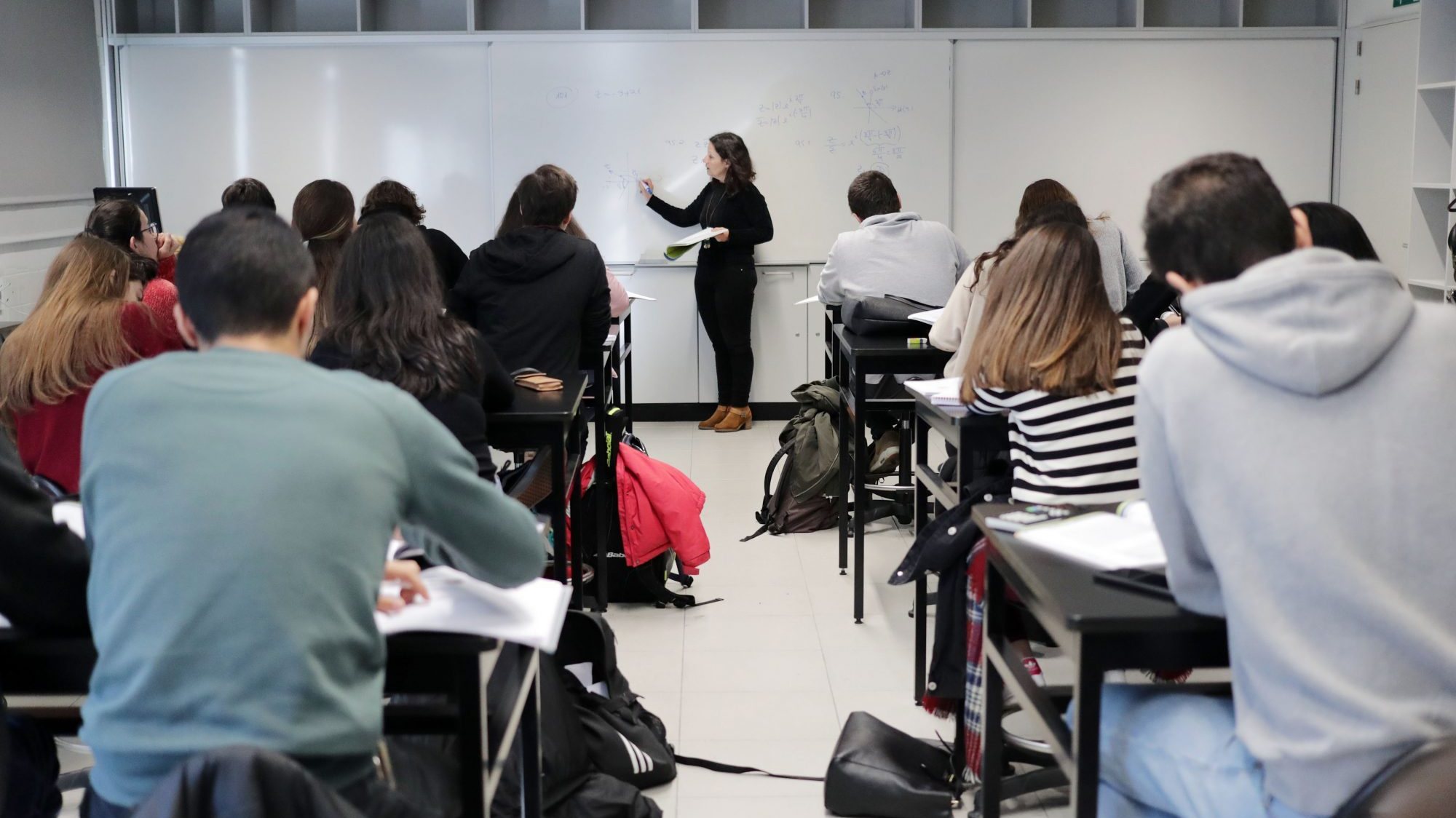The Portuguese Mathematical Society (SPM) accused the Ministry of Education (ME) of throwing the learning of Mathematics in secondary education to “inexplicable historical lows”, pointing out “multiple and serious problems” to the approved essential learning (AE).
The proposed modifications to the Mathematics curriculum in secondary education, approved on January 13 by the ME, entered into public discussion in June of last year, being the result of a working group created in 2018 to evaluate the problems of teaching Mathematics. discipline in Portugal, analyze the current model, defined during the mandate of former minister Nuno Crato.
“Considering the mathematical and pedagogical-didactic knowledge that defended the proposal, the SPM debated and multiple and serious problems identified in the curricular work proposal —which remain in the approved document—, with direct repercussions on the academic future of the students who may be the object of it”, criticized the SPM in a published opinion.
Among the criticisms of the scientific society are “a great setback” in the teaching of the discipline, by resorting to “harmful” options such as the “intensive use of calculators or technological means to formulate conjectures without due validation by analytical processes”, as well as “profound changes” that “prevent a good understanding of various issuesthe acquisition of mathematical knowledge and the development of skills typical of this educational level, directing the learning of this discipline to inexplicable historical lows”.
The SPM argues that the previous program was associated with “an improvement in student performance in several indicators” and criticizes the working group for “omitting” this correlation in its conclusions, as well as the ME, regarding the approved document.
“The final version does not correct errors of a scientific nature, nor those of a pedagogical nature, therefore, it cannot be considered a legitimate document as a guide for a task as noble and necessary as the teaching of Mathematics”, defends the SPM.
For the scientific association, what is at stake is “hard-earned progress in the teaching of Mathematics”and the approved reforms constitute “a setback” to “outdated and anti-scientific conceptions that have prevailed for 50 years and have been completely outdated by modern scientific research”, further arguing that the document consecrates “superficiality in the treatment of various topics”, which, among other things, threatens the “adequate preparation in mathematics of young people for higher education courses.”
“The framework created by the AE means that the SPM cannot omit a clear concern for the inequalities that it can generate in the quality of learning and the academic success of students. In fact, students who want to study scientific areas with a strong mathematical component will have a very insufficient mathematical knowledge, which will decisively condition their success in higher education and the consequent professional practice”, reads the opinion of the SPM.
For the scientific society “only the recognized competence and common sense of teachers will be able to overcome some of the problems indicated” and affirms that “it will do everything possible to mitigate the effects that a strict application of these Essential Learnings can bring”. to the Teaching of Mathematics in Portugal”.
“The SPM cannot help but vehemently and publicly regret this extemporaneous and progressive dismantling of the structural pillars on which the Portuguese School is based, after the progress of decades conquered with so much effort by our students and their families and schools, in a a process that, if it does not stop soon, will have consequences that will take another decades to correct”, concludes the scientific society.
The changes in the teaching of Mathematics in Secondary Education should come into force in 2024.
Source: Observadora
